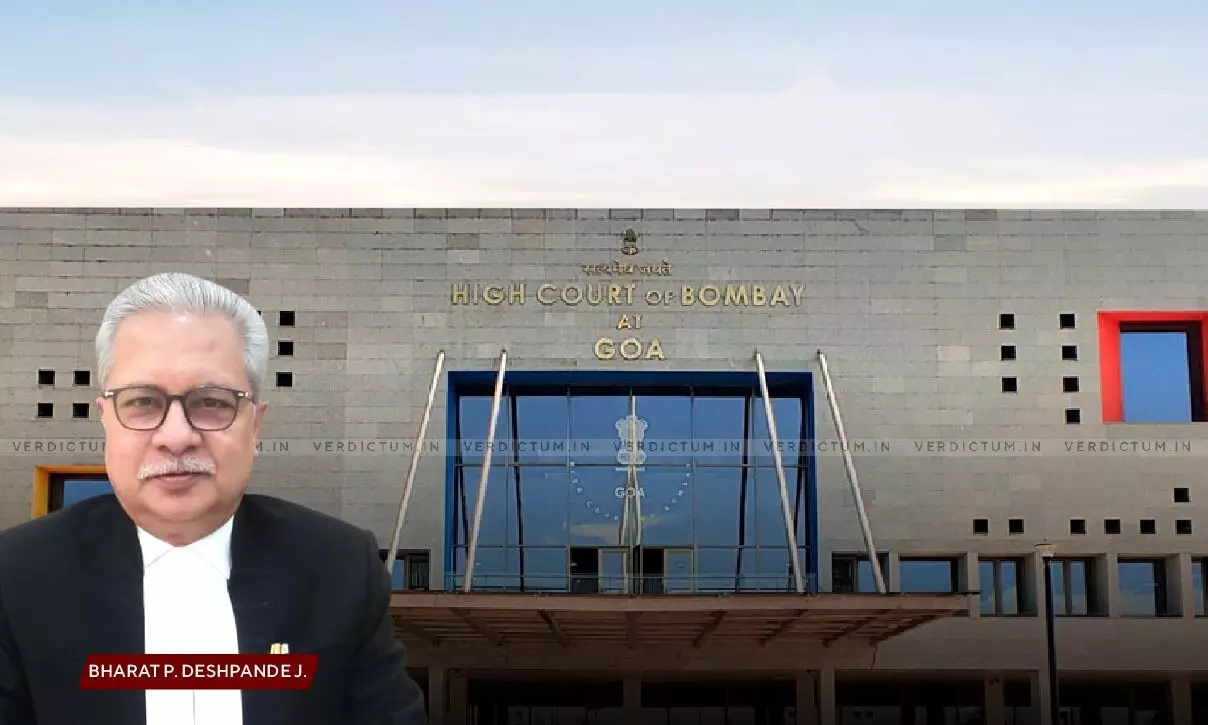
Accused Cannot Seek Production Of Documents U/S. 91 CrPC At Pre-Trial Stage: Bombay HC
 |
|The Bombay High Court observed the accused cannot seek production of documents under section 91 of the Criminal Procedure Code at pre-trial stage.
The Court dismissed a writ petition challenging the order of the Special Court that dismissed the accused's application under Section 91 CrPC that was filed along with the bail application.
“The question of invoking a discretion in view of accused before the start of trial would not be appropriate for the simple reason that at the stage when the bail application is filed or even the matter is argued for the purpose of framing of charges, the court has to look into only the material and documents placed along with the charge sheet with an assumption that such material is true and evaluate it in order to determine whether the facts emerging from it constitute the ingredients of the offence alleged or whether the accused is entitled for bail”, the Bench of Justice Bharat P. Deshpande observed.
Advocate Arun Bras De Sa appeared for the Petitioner and Additional Public Prosecutor Pravin Faldessai appeared for the State.
The Petitioner/Accused, approached the High Court challenging an order of the Special Court. The Special Court had dismissed his application under Section 91 of the CrPC during the stage when the case was scheduled for arguments regarding the framing of charges. The Petitioner asserted that the accusations involved the discovery of illicit substances during a home search that took place without adequate documentation.
The Court framed the following issue: “Whether a trial Court at the time of framing of charge to consider material filed by the accused was under determination?”
The Court noted the powers conferred by Section 91 of the CrPC on both the court and the police station's officer in charge. These powers, applicable to investigations, inquiries, trials, or legal proceedings, allow the court to issue summons or written orders compelling the attendance or production of documents at specified times and places. “When an officer in charge of a police station while conducting investigation considers that a document or other thing is necessary or desirable for conducting such investigation, he may issue summons to such person in whose possession or power such a thing exists”, the Bench noted.
Furthermore, the Court noted that the authority to exercise this power extends to both the court and the police station's officer in charge, especially when the production of a document is deemed essential for trial, inquiry, or legal proceedings. The Court, in such circumstances, can issue a summons or pass an order instructing the person possessing the document to produce it on a specified date. The Bench cited the case of State of Gujarat v Dilipsinh Kishorsinh Rao, emphasizing that the accused lacks the right to present material during the framing of charges or cognizance.
“The Apex Court further observed that it is settled principle of law that at the stage of considering an application for discharge, the court must proceed on an assumption that the material which has been brought on record by the prosecution is true and evaluate said material in order to determine whether the facts emerging from the material taken on its face value, disclose the existence of the ingredients necessary of the offence alleged”, the Bench noted.
The Court noted that if the accused presents evidence from the charge sheet that significantly affects the case, the court should not overlook it while framing charges. The accused has the opportunity to make submissions before the charges are framed to assist the court in deciding whether to proceed with the trial. During the discharge stage, the court should not consider the accused's defense, and "the record of the case" mentioned in Section 227 CrPC refers to documents provided by the prosecution.
Additionally, the Court observed that the determination of necessity or desirability for the production of documents under Section 91 of CrPC must consider the stage at which the request is made. Under Section 91 of CrPC, the Court observed that a police officer may summon a person to produce documents during an investigation or move the court to summon and produce documents during a trial or inquiry.
The Bench noted, “it is to be borne in mind that under Section 91 of CrPC a Police Officer may take recourse by summoning any person to produce any document during investigation or move the Court for summoning and production of document in possession of any person during trial or enquiry. As far as the accused is concerned, his entitlement to an order under Section 91 of CrPC would clearly be considered at the stage of defence but not prior to it for the simple reason that it is to the satisfaction of the Court at a particular stage that such a document is necessary and desirable to be produced during trial”.
The Court rejected the argument that certain records are essential for deciding a bail application and framing charges cannot be considered at this stage, as it pertains solely to the defence of the accused/petitioner. However, if found necessary and desirable during the defence stage, the court may entertain such a request.
Accordingly, the Court dismissed the Petition.
Cause Title: Ravi Laxman Naik v Police Inspector